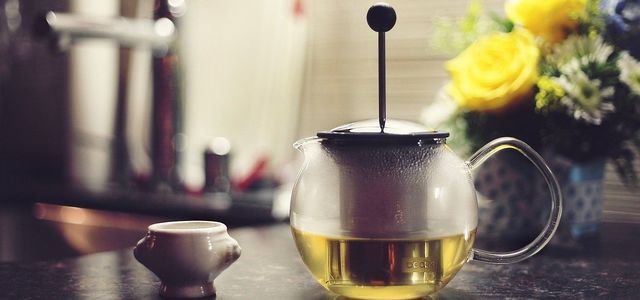
Guayusa tea is a traditional drink in many South American countries. In the meantime, the caffeine-rich tea is also becoming more popular in Europe. Here you can find out more about the effects, cultivation and other characteristics of guayusa tea.
What is guayusa tea?
Guayusa (also known as Ilex guayusa) is a special kind of holly from South America. There it grows at an altitude of 200 to 2000 meters in the Amazon rainforest in Brazil, Colombia, Peru and Ecuador. The palm is an evergreen tree with a branched crown and, depending on the environmental conditions, reaches a height of five to 30 meters.
Today guayusa no longer grows wild, but is cultivated exclusively as a crop. The indigenous peoples have practiced this cultivation in so-called “chacras” for many centuries. These are forest gardens in which different plants grow side by side in a certain way, so that no synthetic ones Pesticides and fertilizers are necessary.
The elliptical leaves of the holly can be dried and then used for the preparation of guayusa tea. The drink is similar in its composition and effect Mate tea. Both plants are best known for their high caffeine content. Traditionally, however, mate is more common in Brazil, Argentina and Paraguay. Instead, guayusa tea is consumed in Ecuador, Peru and Colombia.
This is how guayusa tea works

(Photo: CC0 / Pixabay / Myriams-Fotos)
Like mate tea, Green tea and other beverages containing caffeine, guayusa tea primarily has a stimulating effect. caffeine can also do that Improve thinking skills and coordination and Combat headaches naturally.
The negative side effects (such as restlessness, palpitations and tremors) of too much caffeine should not be caused by guaya tea, according to the manufacturer. Companies justify this with the changed caffeine composition in guayusa leaves. However, the statement has not been scientifically confirmed. If you are very sensitive to caffeine, you should also be careful with guayusa tea.
In addition to caffeine, guayasa leaves are rich in Flavonoids and phenols. Studies on cell cultures show that Guayasa has an antioxidant and anti-inflammatory effect. This lead Scientists back to the flavonoids and phenols. Antioxidants fight against in our body free radicals and bow with it oxidative stress and thus various diseases. There do not seem to be any meaningful clinical studies that describe a specific positive effect of guayasa tea in humans.
From guayasa tea is no known harmful effects. Since the tea contains caffeine, you should only drink it in moderation and preferably not in the evening.
Guayasa tea: preparation and buying tips
You can buy guayusa leaves as loose tea, tea bags or tea pods and prepare it like other types of tea. To do this, pour one to two teaspoons of guayusa into a cup of boiling water and let it steep for about five to ten minutes. The more guayusa leaves you use per cup, the stronger the effect.
From an ecological point of view, guayusa tea is unfortunately a problematic drink. The leaves have to travel long distances from the Amazon to Germany and are accordingly bad Life cycle assessment.
That is why you should only drink the tea in moderation and make sure you buy an organic and FairTrade-Certification to support sustainable cultivation and fair working conditions.
Read more on Techzle.com:
- Mate tea: preparation and effects of the stimulant from South America
- Oxidative stress: origin, meaning and what helps against it
- Making tea yourself: ideas for delicious tea blends